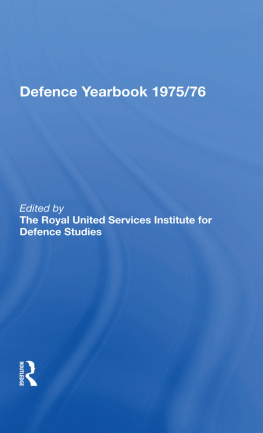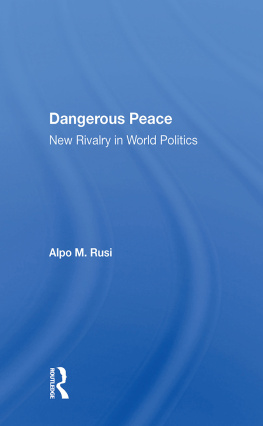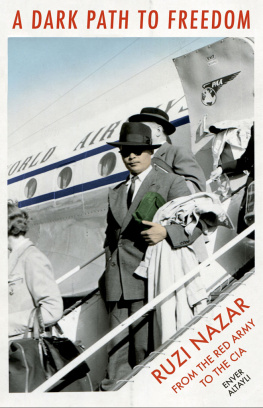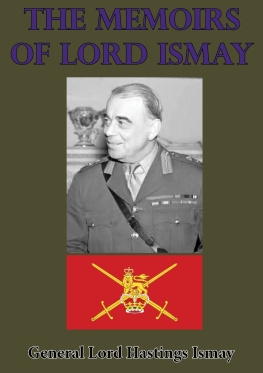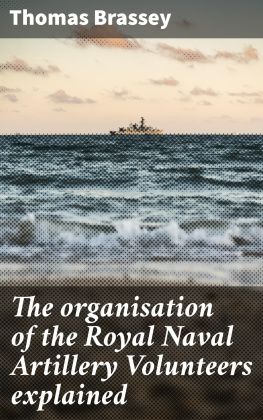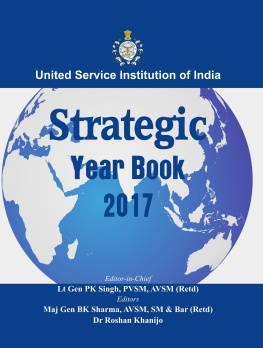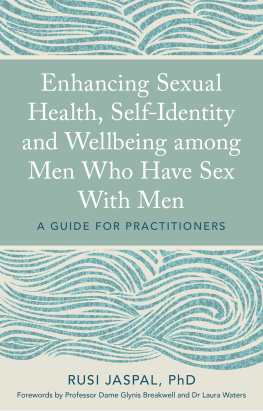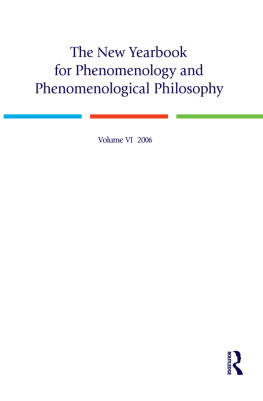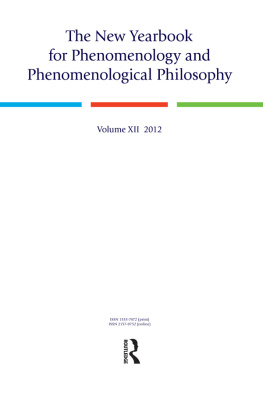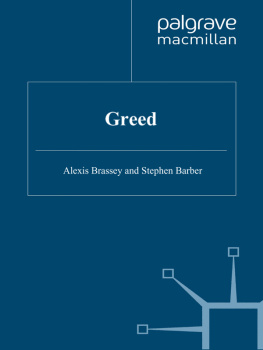Editorial Board
Air Vice-Marshal S. W. B. Menaul, CB, CBE, DFC, AFC
Brigadier R. G. S. Bidwell, OBE
R. H. F. Cox, TD
Research Editor
John Marriott
Assistant Editor
Jennifer Shaw, MA, BSc(Econ)
First published 1975 by Westview Press
Published 2019 by Routledge
52 Vanderbilt Avenue, New York, NY 10017
2 Park Square, Milton Park, Abingdon, Oxon OX14 4RN
Routledge is an imprint of the Taylor & Francis Group, an informa business
Copyright 1975 Brasseys Naval and Shipping Annual Ltd.,
All rights reserved. No part of this book may be reprinted or reproduced or utilised in any form or by any electronic, mechanical, or other means, now known or hereafter invented, including photocopying and recording, or in any information storage or retrieval system, without permission in writing from the publishers.
Notice:
Product or corporate names may be trademarks or registered trademarks, and are used only for identification and explanation without intent to infringe
Library of Congress Catalog Card Number: 75-29923
ISBN 13: 978-0-367-28644-6 (hbk)
Contents
Sir Christopher Foxley-Norris, Brian Schofield and Shelford Bidwell
Rolf Boehe
Neville Brown
John Bruce Lockhart
Brian Crozier
James E. Dornan
David Greenwood
E. Stuart Kirby
Hans Rhle
Frank N. Trager with William L. Scully
Sir Hermann Bondi
Guide
F OR the second year the Royal United Services Institute for Defence Studies has edited the RUSI and Brasseys Defence Yearbook. This partnership had the immediate effect of almost doubling the circulation of the 1974 Yearbook over the previous issue and, we feel, underlines the distinction of the contributors and the value of the international associations made by the Yearbook under the guidance of the RUSI.
As a result of a close working relationship with the Arbeitskreis fr Wehrforschung in Stuttgart the Yearbook is now establishing a sale in Germany and in this issue we welcome two articles by distinguished German military commentators. It is hoped in future issues to further broaden the European base of the publication.
At the same time the wider strategic issues are not being neglected and this issue again welcomes essays by several distinguished American authors. This is entirely appropriate since the volumes representation in the United States has now been substantially strengthened.
The major change that came with the new title was the introduction of a separate section on modern weapons technology. This is, we believe, an unique review of development in its field and aroused sufficient interest for the 1974 section to be reprinted in its own right as a paperback under the title RUSI and Brasseys Weapons Technology. This year this Part has been expanded with sections on military communications, battle tanks, mine warfare at sea, air attack and penetration systems and standardisation in NATO. Furthermore it is introduced by an article on the limitations of Defence Technology by the noted British defence scientist Sir Hermann Bondi.
One of the most heartening reactions to last years edition was a considerable increase in the number of subscriptions from foreign Governments, Universities and Defence Establishments. It is heartening because the Royal Charter under which the RUSI was set up defines its role specifically as for the study of British Defence and overseas policy and for the promotion and advancement of the science and literature of the three Services. It is our hope that this Yearbook advances that aim.
S. W. B. M ENAUL
Director General, Royal United Services Institute for Defence Studies
R. H. F. C OX
Managing Director, Brasseys Publishers Limited
1
Britains Future Defence Policy: The 1975 Defence White Paper and its Effects
This analysis of the British governments proposals to reorganise and restructure its defence forces and effect major economies (statement on the Defence Estimates, March 1975, Cmnd. 5976) is the cooperative effort of an RUSI team consisting of Air Chief Marshal Sir Christopher Foxley-Norris, Vice-Admiral B. B. Schofield and Brigadier Shelford Bidwell.
T HE task of compiling the annual Defence White Paper has of recent years become more and more awkward for its unfortunate authors, whose unenviable responsibility it is to describe the continuing process of weakening and undermining the countrys defences; but at the same time to represent that national security remains adequately safeguarded.
This years proposals for defence cuts are so drastic that what has previously constituted an effort to thrust the tongue further and further into the cheek now inexorably becomes an exercise in plain hypocrisy; and it should be mentioned that this article was written in the context of the original White Paper, before the additional unidentified cuts of over 100 million emerged in the Budget. To take one example, we read that, because of the decision to withdraw our forces from Malta, the maritime squadron of Nimrod aircraft now based there will be eliminated from the RAFs front line. This is justified on the grounds that their role disappears with the progressive withdrawal from our Mediterranean commitments. What is not disclosed is whether the Soviet fleet of surface ships and submarines in the Mediterranean which gave them that role is also conveniently and coincidentally to be withdrawn. There seems no evidence to support such an assumption.
The unreality of the approach to the whole problem of defence can be detected at the very outset of the White Paper, whose initial paragraph affirms that the current defence review is based on a study of what we can afford to spend on defence. Unless and until Governments are prepared to consider the matter from the other end of the telescope, i.e. what can we afford not to spend on defence, these exercises will remain a waste of time and effort and will inevitably lead to the impairment of our national security. The same unrealistic approach is shown by the discussion of our own, our allies and our opponents defence expenditure as a percentage of our gross national product. The resulting fallacy is illustrated by Figure I of the paper, which at first sight appears to indicate that British defence expenditure stands in third place in the league ratings of NATO, superior indeed to France and Germany; when of course the fact is that both these countries are spending considerably more than ourselves on their national security. Furthermore the distortion of the picture is even more accentuated when it is remembered that the figures shown for defence expenditure for conscript armies include a very small proportion for pay, welfare, etc.; whereas a large proportion of our own so-called Defence Expenditure goes on pay, pensions, housing, hospitalisation, education and welfare for our volunteer forces and their families, with of course a consequently smaller sum available for actual fighting capability. The clich about statistics and their relation to lies is too familiar to bear repeating.
While on the subject of what may be euphemistically called half-truths, it would be difficult to surpass that of Para. 6 which implies that the drastic reduction of military manpower is necessary because the skilled men and the industrial resources so made available must and will be put to better use in the national economy. At a time when major industrial firms are tottering or falling all around us for lack of utilisation, and when nearly a million workpeople, many of them highly skilled, cannot find employment this really does take a great deal of swallowing.

